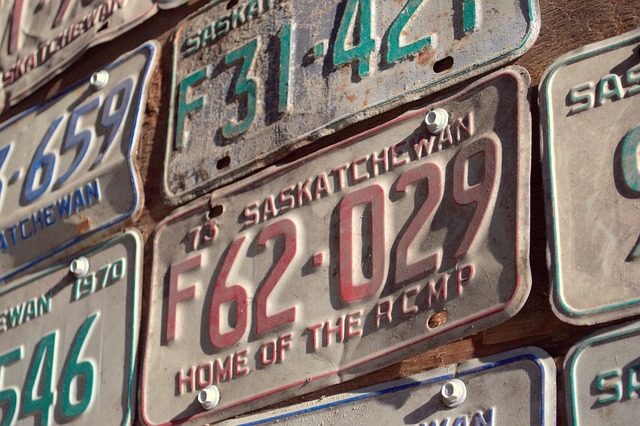Before registering your vehicle in a new state, thoroughly research smog check and emissions testing requirements by visiting your local DMV's website. Gather essential documents, including proof of ownership and residency, and consider digitizing them for backup. Stay informed about specific guidelines for inspections, maintenance, and potential waivers for older or specialized vehicles to ensure a smooth registration process.
Relocating to a new state can be an exciting endeavor, but navigating the complexities of vehicle registration can feel like a hurdle. With each state having its own set of rules and regulations, understanding out-of-state vehicle registration requirements is crucial for a smooth transition. This article guides you through the process, from researching state-specific mandates to leveraging recent DMV updates that aim to streamline the experience. By understanding smog check policies, preparing for inspections, gathering essential documents, and staying informed about regulatory changes, you can confidently navigate this aspect of your move.
- Research State-Specific Vehicle Registration Requirements
- Understand Smog Check Mandates and Exceptions
- Schedule and Prepare for Vehicle Inspection
- Gather Necessary Documents for Registration
- Streamline the Out-of-State Registration Process with DMV Updates
Research State-Specific Vehicle Registration Requirements

Before diving into the registration process, it’s crucial to research and understand the unique requirements of your new state. Every jurisdiction has its own set of rules and regulations when it comes to vehicle registration, including specific criteria for vehicle inspections and emissions testing, known as smog checks. These standards are designed to ensure road safety and environmental protection. By familiarizing yourself with these requirements in advance, you can avoid potential delays or fines later on.
Start by visiting your new state’s Department of Motor Vehicles (DMV) website. Most DMVs provide comprehensive guides and checklists for out-of-state residents looking to register their vehicles. These resources will outline the necessary documents, fees, and procedures, ensuring a smoother transition. Remember, staying informed about local laws is the key to a successful and compliant vehicle registration process.
Understand Smog Check Mandates and Exceptions

Moving to a new state means getting your vehicle registered, which often involves understanding and adhering to specific environmental regulations, including smog checks. Smog check mandates vary greatly from one state to another, with some requiring regular inspections for all vehicles, while others have exceptions or less stringent rules. These regulations are designed to ensure that vehicles meet certain pollution emission standards to protect the environment and public health.
To smoothly transition your registration, it’s crucial to research and understand the smog check requirements in your new state. Some states waive smog checks for older vehicles or those with historical significance. Others might offer exemptions for vehicles used primarily for farming or off-road activities. Knowing these exceptions can save you time and effort during the registration process. Always consult your local DMV for the most up-to-date information tailored to your specific situation.
Schedule and Prepare for Vehicle Inspection

Before scheduling your vehicle inspection, familiarize yourself with the specific requirements of your new state. Every region has different regulations regarding emissions tests and vehicle safety standards. Check the DMV’s website for a comprehensive guide on what to expect. Gather all necessary documents, including proof of ownership, registration history, and any relevant certificates or permits.
Prepare your vehicle for inspection by ensuring it meets the required safety standards. This may involve basic maintenance tasks like checking tire pressure, replacing worn-out parts, and ensuring all lights are functional. Keep in mind that some states mandate a smog check as part of the registration process, so be prepared to address any emission-related concerns your vehicle might have.
Gather Necessary Documents for Registration

Before you begin the registration process, it’s crucial to gather all the essential documents. This step is critical to ensure a smooth transition and avoid any potential delays or issues. Key documents include your valid driver’s license, proof of insurance, vehicle ownership papers (like the title or purchase agreement), and identification proving your residency in the new state. Some states might also require additional paperwork, such as a registration card from your previous state or specific forms for out-of-state transfers.
Make copies of each document as a precaution, especially if you’re mailing them to the DMV. It’s always beneficial to have extras on hand, ensuring that even if one copy is lost in transit, you still have the necessary information readily available. Digital versions can also be useful; storing these documents electronically allows for easy access and sharing if needed.
Streamline the Out-of-State Registration Process with DMV Updates

Moving to a new state often means navigating unfamiliar territories, including the process of registering your vehicle. However, recent updates from Department of Motor Vehicles (DMVs) across the country aim to simplify this transition for out-of-state residents. These changes streamline the registration process, making it easier for newcomers to comply with local laws and avoid potential penalties.
One significant update is the adoption of standardized forms and procedures, allowing drivers to register their vehicles more efficiently. Additionally, many DMVs have implemented online platforms where you can complete applications, upload documents, and track the status of your registration. This digital approach not only saves time but also reduces the need for in-person visits, making the process more convenient.
Moving to a new state doesn’t have to be a daunting task, especially when it comes to vehicle registration. By researching each state’s unique requirements, understanding recent DMV updates, and preparing accordingly, you can ensure a smooth transition. Remember, compliance with local laws is key, so take the time to familiarize yourself with the process and necessary steps. With a bit of planning and attention to detail, navigating out-of-state registration can be a straightforward part of your move.



